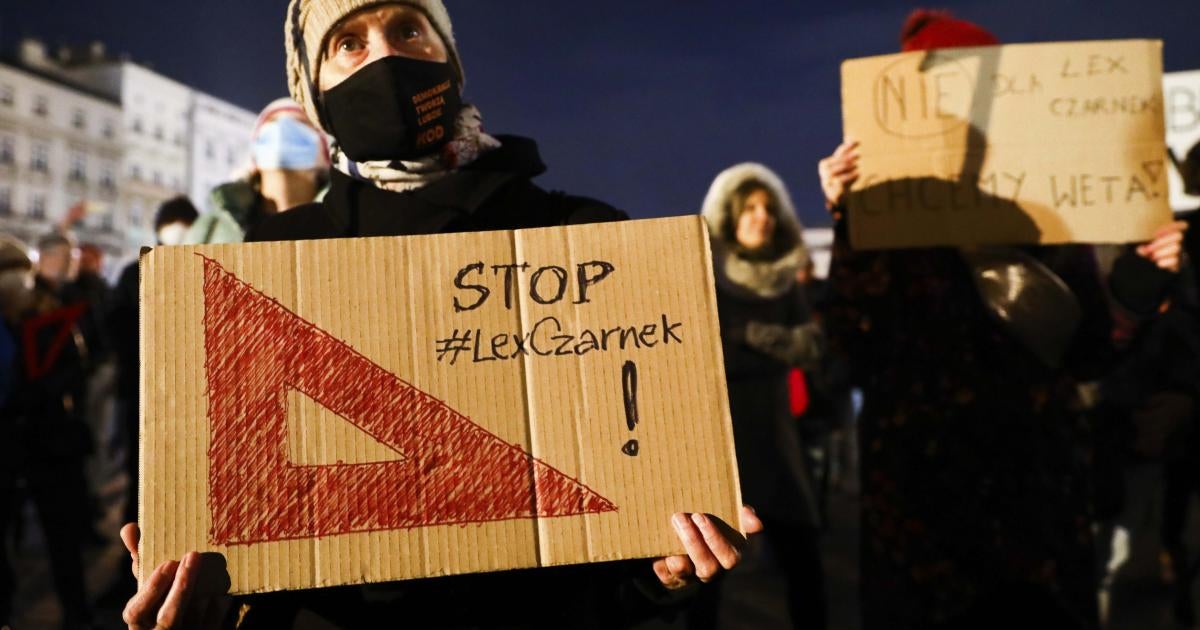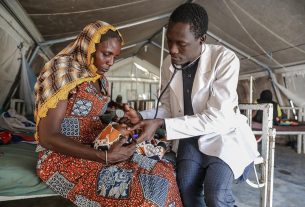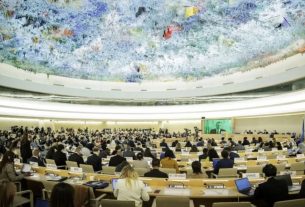[ad_1]
(London) – President Andrzej Duda of Poland should veto a regressive and discriminatory bill that threatens sex education, including about sexual orientation and gender identity, Human Rights Watch said today.
The proposed legislation is a revised version of a bill including similar provisions that Duda vetoed earlier this year, calling for unity at a time of crisis due to the Russian invasion of Ukraine.
“Duda should swiftly veto this harmful new bill,” said Kyle Knight, senior LGBT rights researcher at Human Rights Watch. “Accurate and inclusive age-appropriate sex education is a crucial element of the rights to health and education and is critical to promoting healthy relationships and reducing gender-based violence, adolescent pregnancy, maternal mortality, and HIV.”
The bill would centralize control over Polish schools and limit already restricted access to comprehensive sexuality education. The bill is informally called “Lex Czarnek 2.0” after Education Minister Przemysław Czarnek, who initiated the first bill and has been promoting the revised version. The legislation would give government “educational welfare officers” the authority to decide what extracurricular or educational activities can occur on school grounds and establish a complex bureaucracy around approving or refusing such activities.
On November 29, the opposition-controlled Senate, the upper house of Poland’s national legislature, rejected the bill, sending it back to the Sejm, the lower house, controlled by the ruling Law and Justice party. On December 2, the Sejm rejected the Senate’s veto and passed the bill. President Duda has 21 days to decide whether to sign or veto it.
Nongovernment organizations are the only providers of comprehensive sexuality education in many places in Poland. The state school curriculum includes misinformation about reproductive health and sexuality and perpetuates myths and discriminatory stereotypes rather than providing evidence-based sex education in line with international and regional standards.
The bill would increase the authority of regional school superintendents, appointed by the education minister, over school principals and grant superintendents the power to block activities led by nongovernment organizations in schools, a decision currently in the hands of parents’ councils.
Because school superintendents are appointed by the government and the government has targeted comprehensive sexuality education and those who provide it, the changes could lead to ideological control over schools and politicized choices about who can provide educational activities. Superintendents would also be involved in decisions about removing principals, potentially politicizing that process as well.
If the bill becomes law, it would have a chilling effect on teachers and organizations that provide comprehensive sexuality education, and de facto prohibit Polish schools from addressing topics of sexual orientation, gender identity, and reproductive rights, Human Rights Watch said. The bill puts a host of children’s rights at risk, including the rights to information, education, and health.
Dozens of civil society organizations, teachers’ unions, and local authorities’ consortiums associated with the Free School Coalition have warned that the measure would gradually deprive schools of autonomy and create fear and distrust among teachers, who may fear repercussions if they step out of line with the government. Education and rights advocates have pointed out that Education Minister Czarnek recently approved a new official textbook that contained biased and discriminatory content.
Czarnek, known for efforts to reshape the school curriculum in line with a conservative, Catholic agenda, claims the new law is necessary to “protect children.” He has promoted gender stereotypes, including emphasizing women’s “destiny to bear children,” and the near-total abortion ban introduced in 2020. Czarnek also positions himself as an opponent to so-called “gender and lesbian, gay, bisexual, and transgender (LGBT) ideology” a term used to demonize gender equality and the rights of women and LGBT people. In December 2020, over 170 academics from around the world called for an international “boycott” of Czarnek, due to his “homophobic, xenophobic and misogynistic views.”
Another bill that could have a detrimental impact on education was referred to government committees for further review in April. If passed, this bill, introduced by Law and Justice allies, would potentially criminalize anyone providing sex education or information with prison sentences of up to three years. Even without more stringent laws, teachers and school administrators who support sexuality education or reproductive rights have already been harassed, dragged through administrative proceedings, and threatened with losing their jobs.
The bill would also affect 200,000 child refugees from Ukraine studying at Polish schools, which rely heavily on civil society organizations to provide specialized assistance such as psychosocial and language support to refugee children. Many organizations offering such services also work on LGBT or women’s rights. The bill would place additional bureaucratic requirements on such organizations, which could prevent them from receiving approval to work in schools at all.
“President Duda already decided once that vetoing a variation of this law was the right thing to do, and he should do the same again,” Knight said. “Students, teachers, and parents across Poland have spoken up to make clear just how harmful and unnecessary this legislation would be.”
[ad_2]
Source link



